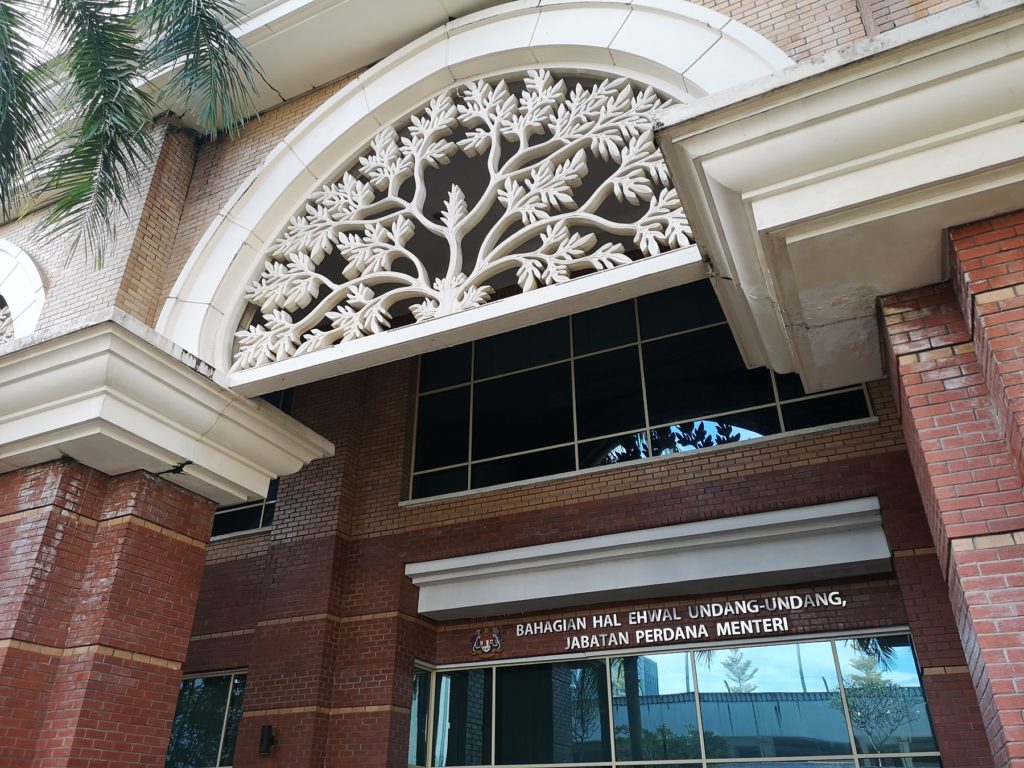
National Stakeholders Consultation on the Right to Information Legislation
Organised by the Centre for Independent Journalism (CIJ) and the Coalition of CSOs on Freedom of Expression in collaboration with The Legal Affairs Division of the Prime Minister’s Department (BHEUU), the National Stakeholders Consultation on the Right to Information Legislation was held from 27–28 November 2019 in Putrajaya, Malaysia.
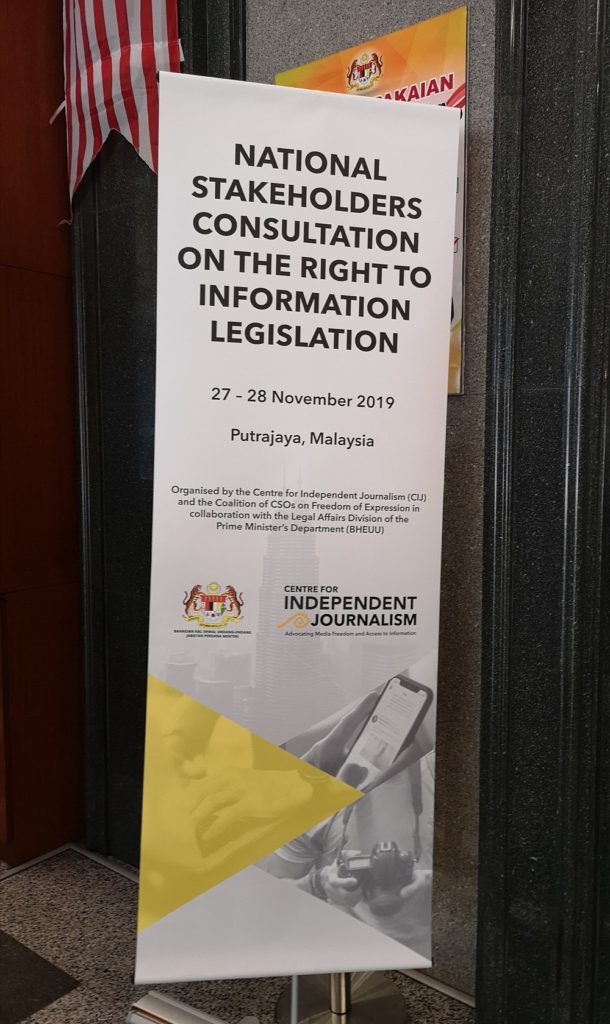
Keynote Address was delivered by YB Datuk Liew Vui Keong, Minister in the Prime Minister’s Department for Legal Affairs after Ms. Wathshlah Naidu, Executive Director of Centre for Independent Journalism (CIJ) delivered the welcome remarks.

Session 1: Charting the Opportunities and Potential Barriers/Challenges in Upholding the Right to Information in Malaysia
This panel session explored the opportunities and potential challenges from the perspective of stakeholders in upholding access to information as a right.
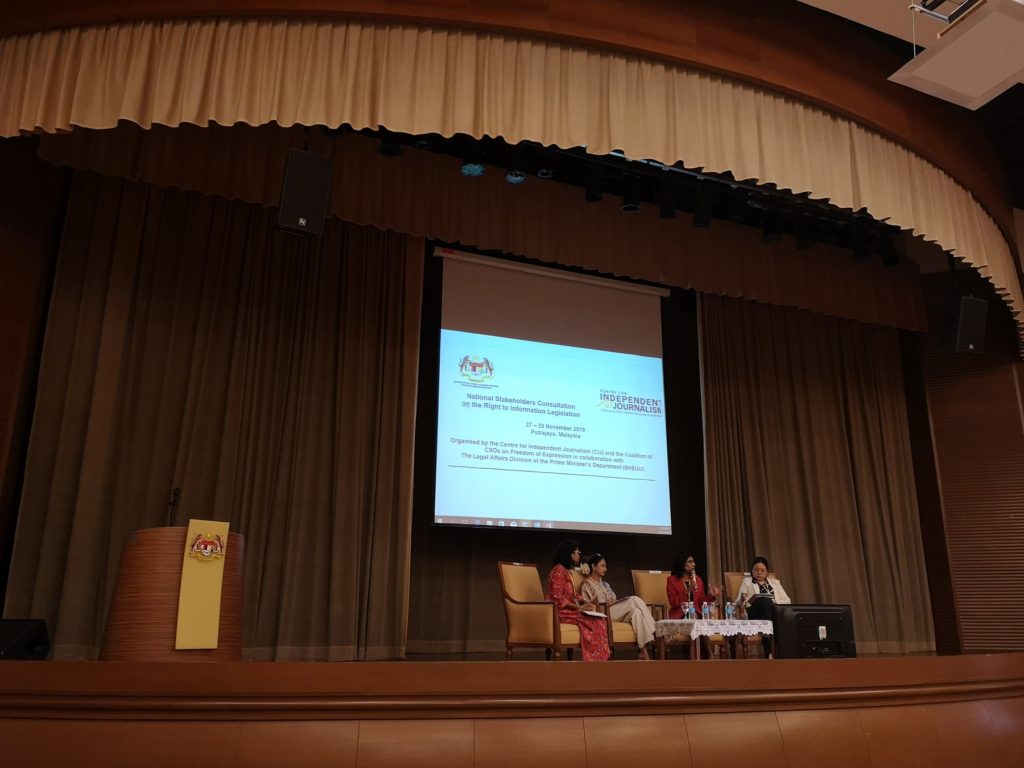
Session 2: Understanding the Fundamental Principles and Modalities of a Right to Information Legislation
Moderated by Nalini Elumalai, Malaysia Program Officer of ARTICLE 19, this panel session examined the principles and modalities of a right to information law based on international standards. It was presented through live streaming.
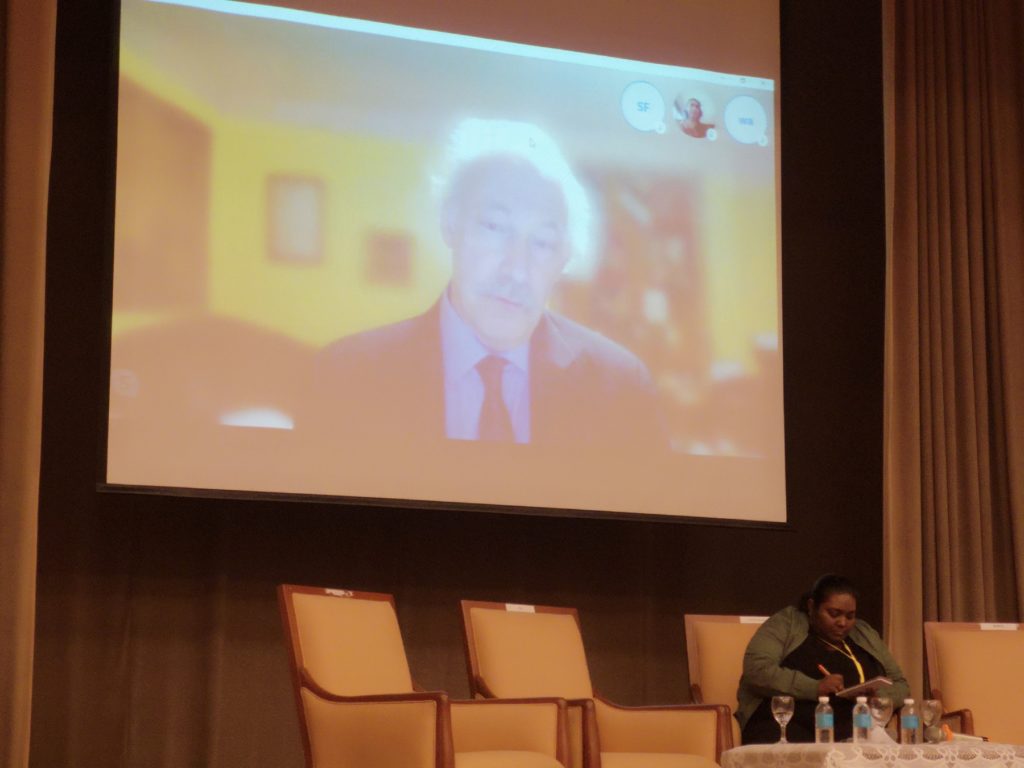
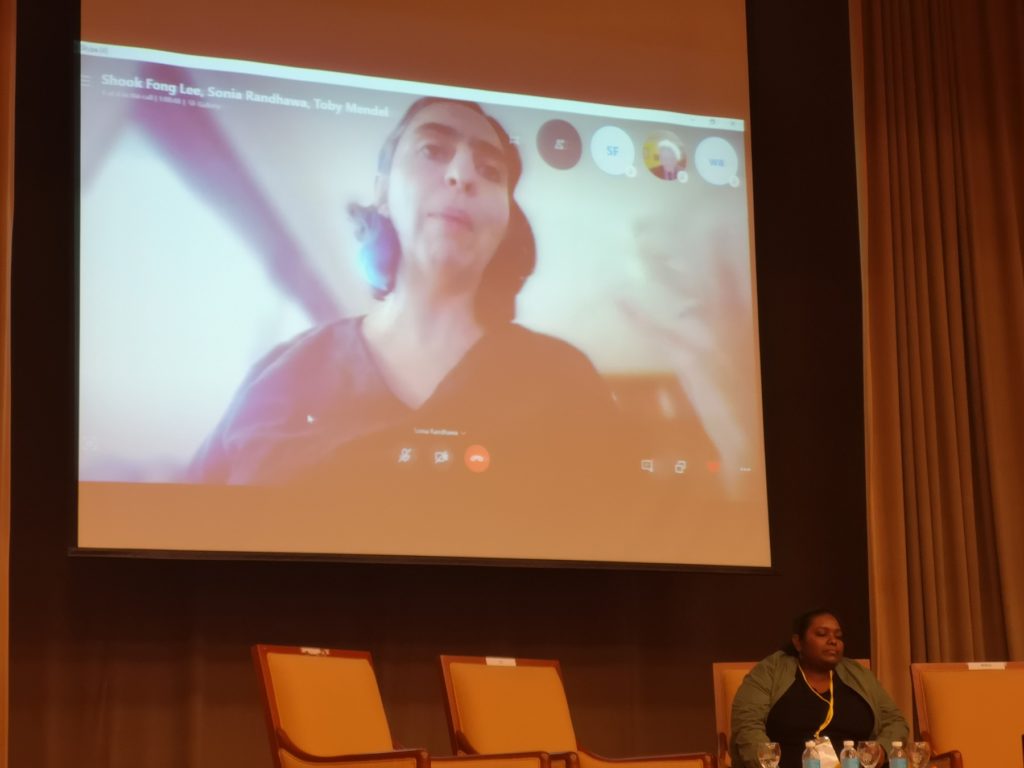
Session 3: Taking Stock of the Different Models at the National, Regional and International Level
This session examined the existing models of freedom of information law / enactments in Malaysia and globally.
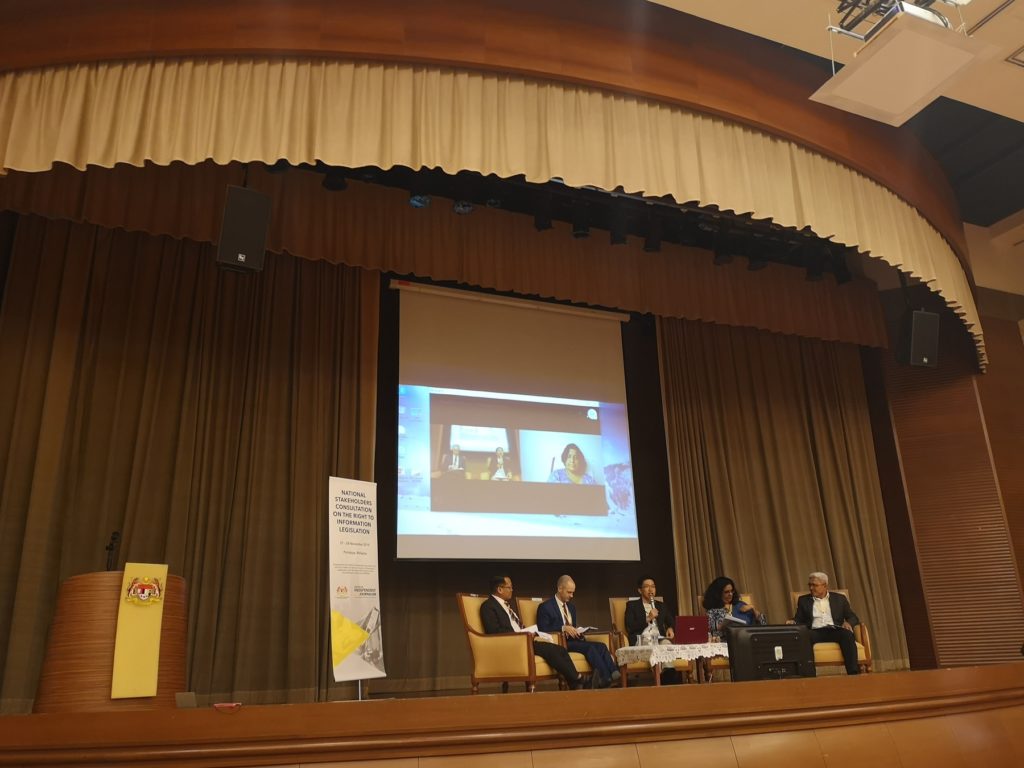
Panelists:
- YB Nik Nazmi Nik Ahmad, State Assemblyman of Selangor
- Ms Meena Raman, Sahabat Alam Malaysia (live streaming)
- Ms. Kishali Pinto-Jayawardena – RTI Commissioner Sri Lanka
- Mr. John Fresly Hutahaean, Former Commissioner, National Information Commission of Indonesia
- Mr. Matthew Bugher – Head of Asia Programme, Article 19
(Day 2) Session 4: Stakeholders’ Inputs on Key Elements of the Proposed RTI Bill
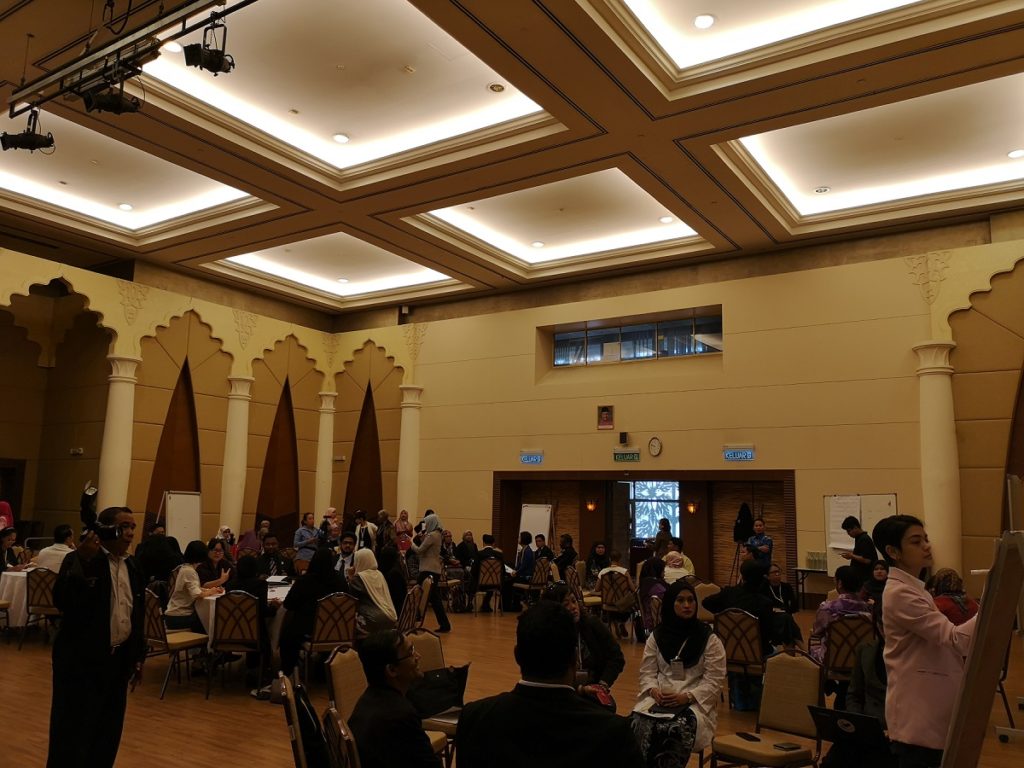
Moderated by Ms. Firdaus Husni from MCCHR, this “world-café” style session gathered input from participants on key elements of the proposed RTI Bill.
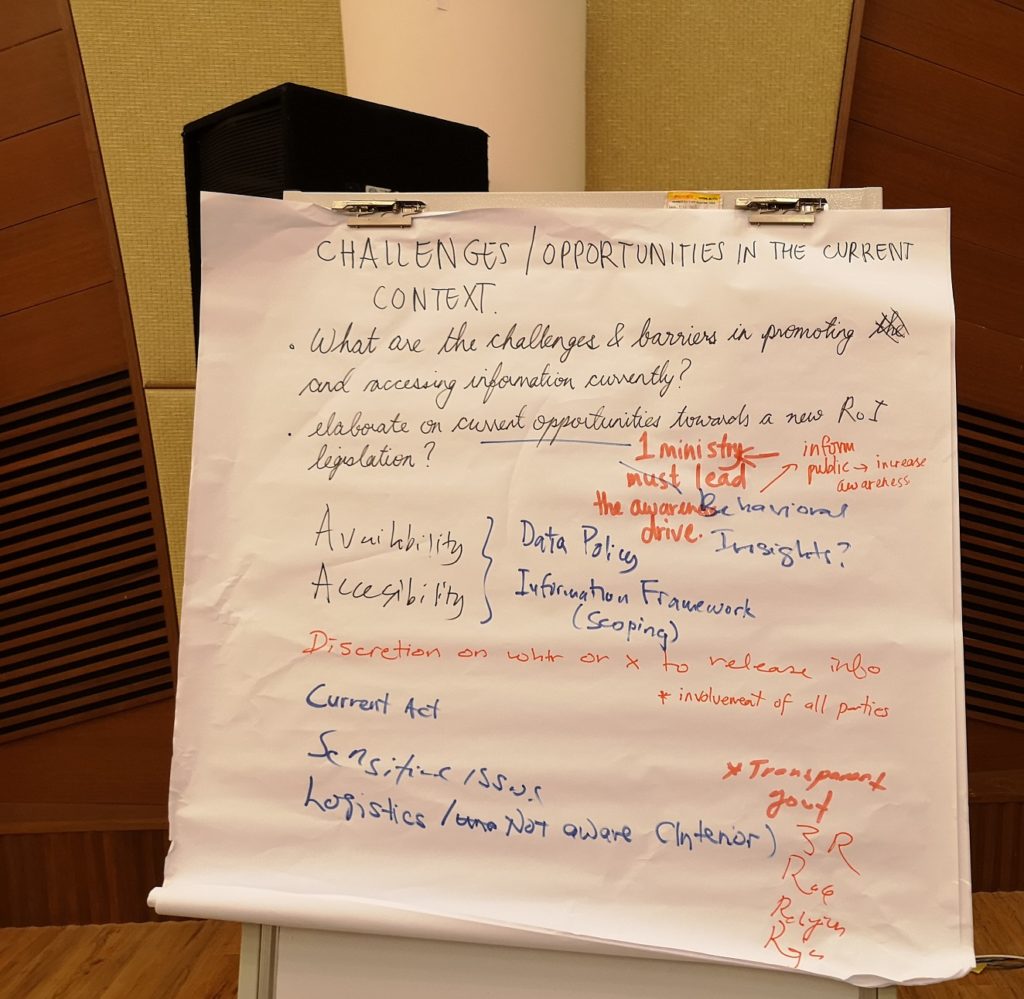
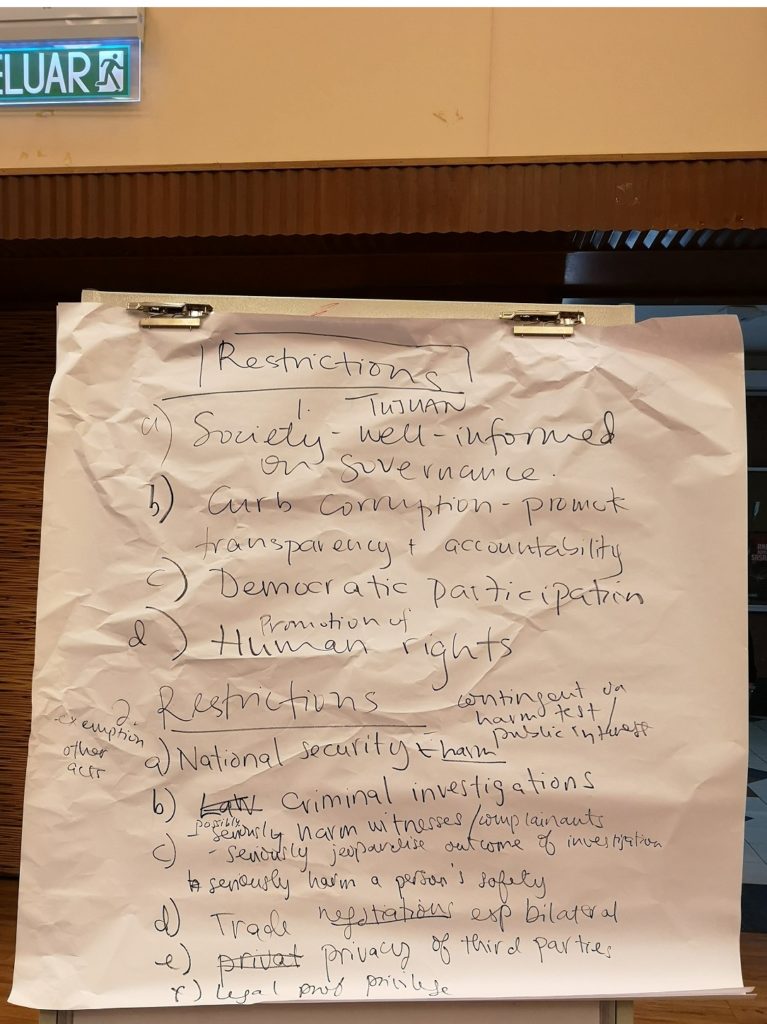
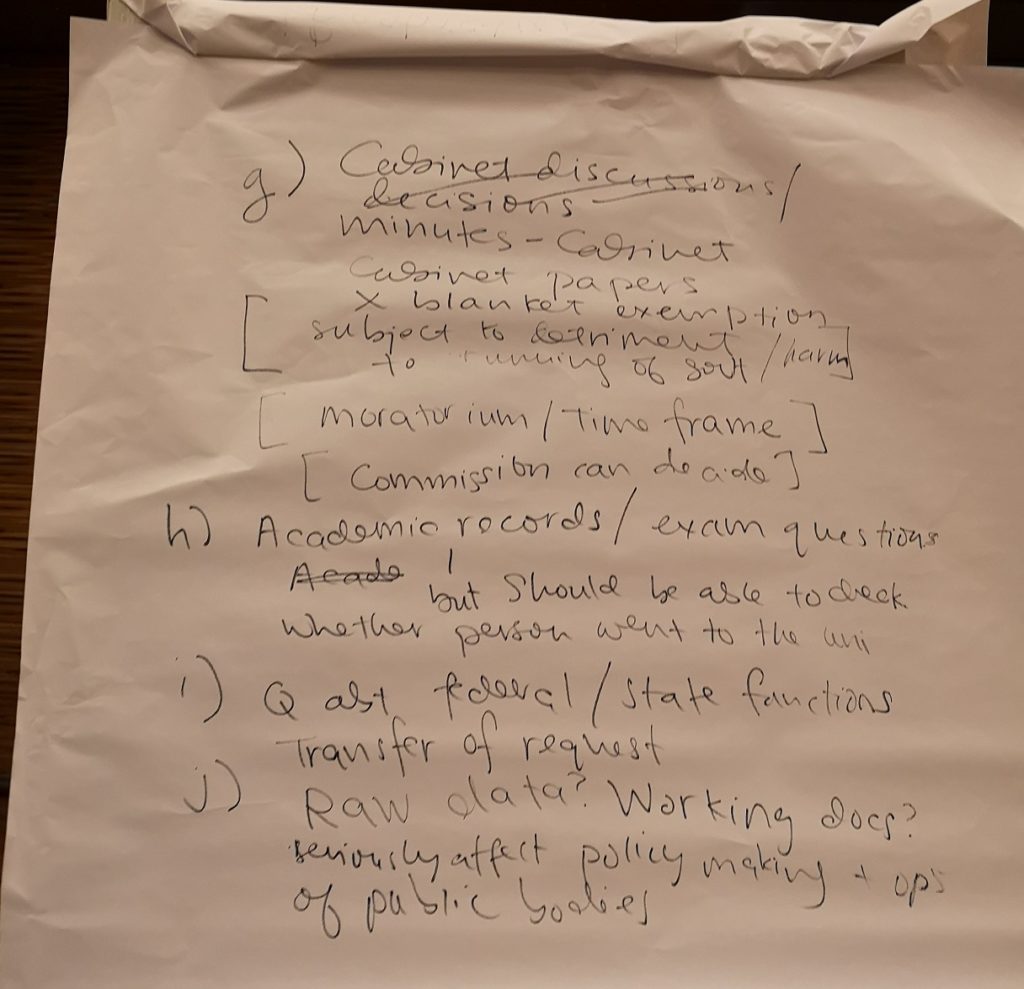

(Day 2) Session 5 – Report back & Synthesis of Recommendation
This session consolidated input from the participants and discussed the way forward from this consultation on legislating a RTI Bill in Malaysia.
Launch of C4 FOI Report 2019
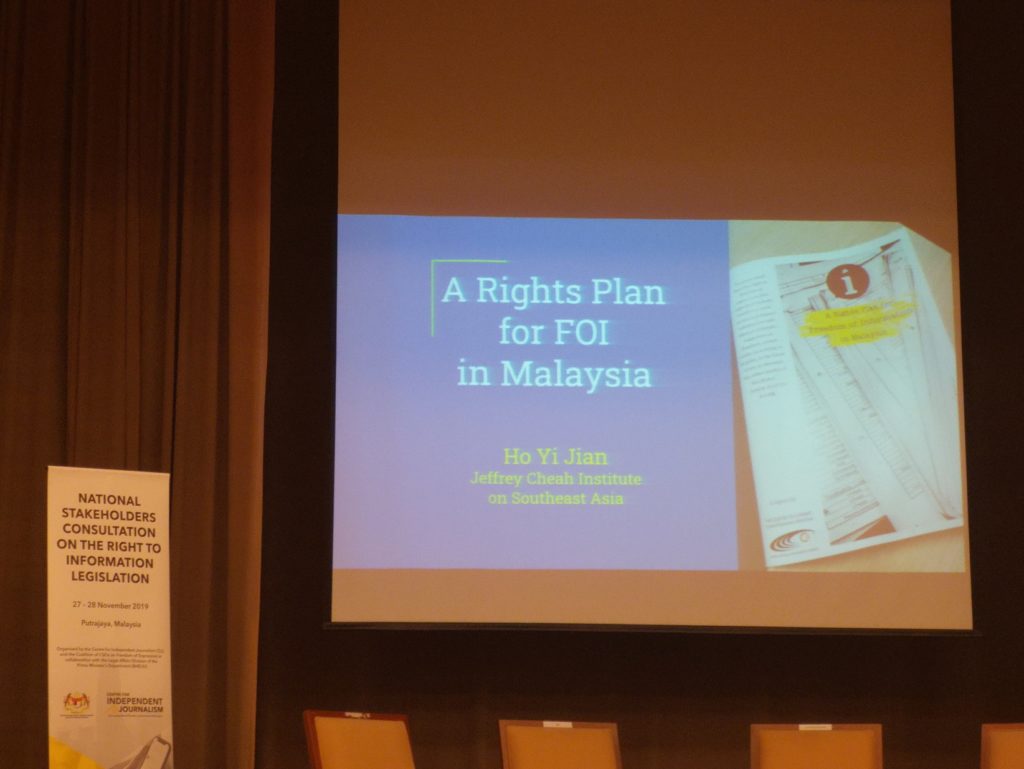
There was a simple launch of Freedom of Information Report 2019 by Ho Yi Jian before the session adjourned in day 2.
In summary, the report stated the basics that must be in place:
- Presumptive Right of Access
- Wide Scope of Application
- Unobstructive Requesting Procedures
- Clear Rules-based Exceptions
- Independents Appeals Process
- Appropriate Legal Sanctions
- Promotional Measures
- Supercede secrecy laws
Notes
There is an inseparable relationship between an individual’s right to information and their quality of participation in democratic governance of a country.
The undeniable key components of democratic governance are:
(1) In order to make informed choices, citizens must have a democratic Right to Information and Right to Access Documents which the government collects and holds.
(2) The right to access documents opens up opportunities for private citizens to scrutinise government decisions and spending that directly or indirectly affects them, contributing to the reduction of public service corruption.
SDG Goal 16 : Peace, Justice and Strong Institutions
SDG Goal 16 “Peace, Justice and Strong Institutions” includes Freedom of Information ( #FOI ) as an indicator.
- Indicator 16.10 – to ensure public access to information and protect fundamental freedoms, in accordance with national legislation and international agreements.
- Indicator 16.10.2 – the number of countries that adopt and implement constitutional, statutory and/or policy guarantees for public access to information.

It is our hope that the eventual FOI law is sufficiently robust to preemptively check kleptocratic tendencies, and we recognise historical efforts by fellow Malaysian organisations to fight towards a strong, effective FOI law.
The Center to Combat Corruption and Cronyism (C4 – Clean, Conscious, Competent, Credible)
Unorganized Notes:
Rights to Information (RTI):
– Presumption
– Coverage
– Procedures
Any loopholes?
Leap of Faith
- Role of RTI Commission
- Empower individual / empowering the powerless beyond mere release of information
- Systematic change
Information is potential power.
When you know something you make informed and better decisions.
What goes into the law is pertinent.
No Data, No Story
Government agencies, civil society, institutions – reliable, relevant and timely information.
The manner in which data is curated.
Information – lifeline of democratic society.
Freedom of information is fundamental human rights.
Enactment at state level – example Selangor and Penang in Malaysia.
Great things happen when great minds gather.
Promoting good governance in public administration – Efficiency, transparency and accountability based on good governance, public’s right to be informed.



